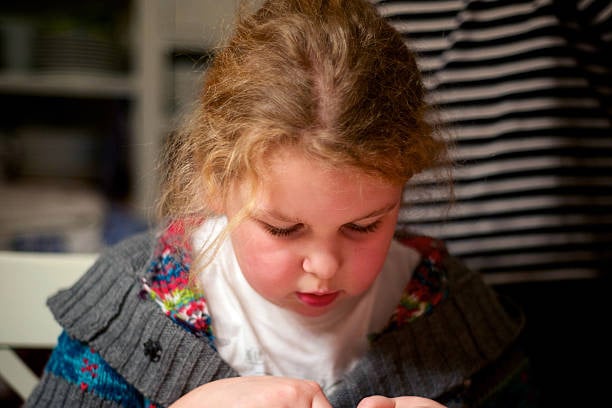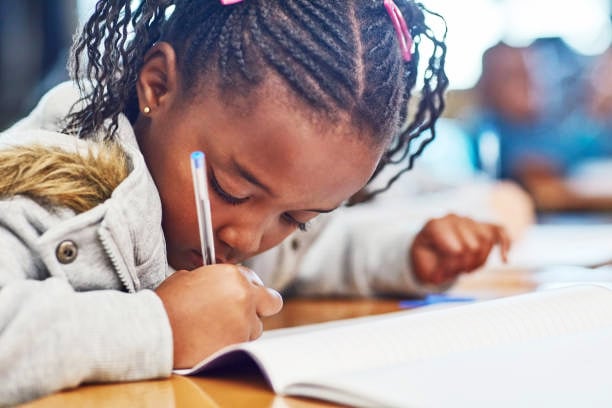Challenging Behaviour
Working with children and young people with behavioural challenges
No matter what your child’s special needs might be, they may be anxious and present with behavioural challenges that go alongside their condition. And if you stop for a moment and imagine what it is like to be a young person with SEN, it’s easy to see why.
On one hand, emotional and behavioural difficulties can be an intrinsic part of some neurological conditions. People with autism, for instance, often have trouble understanding social expectations and other people’s behaviour, which means they sometimes get things ‘wrong’ when interacting with other people. This, in turn, increases their own anxiety levels which can lead to anger.
Similarly, kids with ADHD notoriously find it difficult to concentrate or sit still, while many children with all kinds of special needs also have sensory issues. This means that certain lights, sounds, smells and textures, for example, can cause them to feel overwhelmed and panicky as they battle to avoid difficult sensations.
Living with a physical, emotional or neurological condition
On the other hand, some behavioural difficulties stem from the stress a child feels as they try to ‘fit in’ at school or cope with their particular challenges. A youngster with hearing problems, say, may struggle to follow conversations and feel sad and isolated as a result. Someone with Dyslexia might mistakenly believe themselves to be ‘thick’ because reading and writing is hard for them and so become despondent.
Unsurprisingly, the frustration young people can feel, with themselves and with the pressures of school and daily life, can exacerbate anxiety levels and lead to angry outbursts or depression. For some children, perhaps those who are non-verbal, a meltdown may be the only way they can let carers know that they are worried or unhappy.


Developing Self-Worth
Because of this, it’s essential for parents to seek professional guidance to pinpoint exactly what their child finds difficult. Identifying their challenges means families, schools and health professionals can work together to find solutions – which then reduces the pressure on the young person and helps them to remain calm.
In addition, most educationalists believe it’s crucial to boost a child’s self-esteem before they can make any progress with life skills or academic work. Teachers often speak about the need to build rapport and trust with SEN students, tailoring lessons around the youngster’s interests, working at their pace and offering praise.
Tutor Spotlight

For over a decade, I have navigated the unique landscape of special needs education across the UK and internationally.
Whether it’s navigating the social complexities of ASC, supporting the emotional rollercoaster of SEMH, or guiding the boundless energy of ADHD, my passion lies in empowering kids with challenging behaviours to unlock their full potential.
I don’t just see labels, I see individuals waiting to blossom, and that’s what drives me every day.
Anthony’s experience working with children with challenging behaviour:
My own journey as a student wasn’t always smooth. I understand the frustration, the confusion, and the yearning to be seen and heard that can fuel challenging behaviour. This empathy lies at the heart of my approach – connection before correction. I have worked with children aged 6-18+ displaying a variety of externally challenging behaviours in primary, secondary and alternative provision schools. In all these situations I have found that with patience, perseverance and active listening the roots of all behaviours can be identified and redirected towards something more positive. Once a child feels heard, they can perform things they never thought possible.
Anthony’s approach for working with children with challenging behaviour:
Building genuine relationships is my cornerstone. Through trust and understanding, I create a safe space for exploration and expression. We move beyond behaviour charts and reward systems to delve into the “why” behind the “what.” By uncovering the triggers and anxieties, we can work together to develop coping mechanisms and emotional regulation skills. It’s a collaborative journey, and every victory, however small, is a celebration.
My top tips for parents/carers with children with challenging behaviour.
- Empathy is key: Step into their shoes, even when it’s hard. Remember, challenging behaviour is often a communication tool.
- Connection, not control: Build trust through shared experiences and active listening. Be their safe harbour, not their battleground.
- Celebrate individual strengths: Focus on what they’re good at, not what they’re struggling with. Building confidence empowers them to tackle challenges.
- Set realistic expectations: Progress won’t always be linear. Embrace setbacks as learning opportunities and celebrate small victories.
- Seek support: Don’t be afraid to ask for help. Connect with other parents, educators, and professionals.
Remember, you’re not alone in this journey. With patience, love, and the right support, kids with challenging behaviours can blossom into empowered individuals.

I am a qualified and experienced specialist SEN tutor based on the Oxon/Bucks border.
I have taught in state and independent schools for over a decade and has worked with young people with a wide range of educational, behavioural and emotional needs.
I am particularly skilled at supporting children who are out of school to re-engage with learning in a way that suits them and the person they are.
Gemma’s experience working with children with challenging behaviour:
Throughout my years of teaching and motherhood, I have seen that challenging behaviour is usually an external manifestation of an inner need that has been unmet or an internal emotion that has been unexpressed. I have supported many children to uncover these and give them a voice. Personally, I always draw a distinction between dangerous vs challenging behaviour and address them differently. I have found that challenging behaviour can be both interrupted and eliminated when an approach of collaboration and care is taken.
Gemma’s approach for working with children with challenging behaviour:
It may be counterintuitive to start by working on oneself but I have found that the most important place to start is to work out why the behaviour is challenging you and what you can do within yourself to lessen its impact. For example, is it that this behaviour is triggering something specifically within you, or is it that you have been socially conditioned to believe that this behaviour is bad or wrong and needs to be disciplined or adjusted? When people are ‘behaving badly’, they are often not in full control of themselves and so they need mature, safe and grounded adults with them. I always remember that I am the adult in the situation and work to ensure that I remain calm, strong and steady.
Young people often don’t yet have the vocabulary or skill sets they require in order to understand and give voice to their needs and emotions. This is so important to work on together in an ongoing, open and non-judgemental way. By addressing the topic of needs and emotions in both explicit and implicit ways, for the young person as well as for others, they begin to realise that we all have needs and feelings and we all behave differently to get them met. This work then builds a relationship of trust: you’re on their side and it’s you and them against the outbursts or the ‘bad behaviour’. From this place, you can work together to develop different ways of being. I have witnessed huge turn-arounds in behaviour when children begin to trust.
Nobody wants to act out. I am yet to meet or work with a child who enjoys being in their challenging behaviour and seeing the impact it can have on those around them. Oftentimes it has simply become a pattern: I feel like this = I behave like that, and it is usually a pattern that the child themselves dislikes too. Modelling ways that we can work on ourselves through self-reflection and conscious awareness and then allowing children the space they need to be able to do that for themselves when they’re ready is, for me, the final piece of the puzzle. Trusting that young people are eminently capable of being with themselves and thinking about their behaviour, is essential. They need to know they can come back to you with their discoveries about themselves and that you will support them without judgement. They need to know that none of us is perfect and that it’s okay to uncover something about yourself that you don’t like, and change it.
My top tips for parents/carers with children with challenging behaviour.
- Work out why the challenging behaviour is triggering you – what is it about the words or actions that you find difficult or upsetting and what can you track that back to?
- Work on developing a secure relationship of trust between yourself and your child – it’s you and them together against the behaviour.
- Allow them the opportunity to work on themselves and reflect on their behaviour and then ensure a safe, non-judgemental space for them to step back in to you.
- Use “when I… then I…” to describe times when your own behaviour has been challenging to yourself or others and be honest with them in an appropriate way – this builds trust and understanding that we are all human.
- Remember it’s not your fault and it will pass – even in the midst of extreme bouts of behaviour challenges, remember to tend to yourself with love and grace.
"My son is full-time home schooled due to his high levels of anxiety which is the primary presentation of his ASD/ADHD diagnosis. We have previously struggled to find a tutor that could effectively work with our son in a way that properly addressed his anxiety towards school work.
SENsational Tutors immediately understood my son's specific needs and matched us with an absolutely brilliant tutor that has made such an impact on our son! Our son's tutor, Effy, puts our son at such ease that his anxiety has nearly disappeared which allows him to fully access the learning material. As a result he has been able to make significant progress in meeting his learning targets this past year.
Most importantly, though, is how much our son looks forward to his tutoring sessions each day. As Effy has built such a trusting relationship with our son, it has been just amazing to see his confidence grow! We cannot recommend SENsational tutors more highly!!!"Danae




